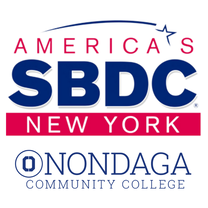 The holidays are over, and as we reflect on the weight gain, credit card debt, and family get togethers, one thing may be sticking out in your head. At least everyone loved my recipe for “fill in the blank.” Maybe you are thinking that you should take your recipe that your family and friends adored so much and do something with it, like turn it into a business or a side hustle right? Well, let’s take a closer look at all that is involved to take your idea for a food business and make it a reality. 1) Certified preparation space Commercial Kitchen vs. Home. Processing. Depending on what you plan to make, the local health department may be able to certify your home kitchen for product preparation and packaging. Item categories that can be made from a home-certified kitchen can be found at this link along with guidelines for what cannot be made from home: https://www.agriculture.ny.gov/FS/consumer/FSI-898D_Home_Processor.pdf You can call and discuss your specifics with the Onondaga County Health Department. Here is a link to obtain applications for special permits you may need before you get started: http://www.ongov.net/health/communitysanitation.html If you find that you are not able to process from home, other options would include paying to rent space in an already established and Health Department certified kitchen. This could include places like the Co-Kitchen (www.cokitchen.com) located on North Salina Street in Syracuse. Alternatively, you can partner with local churches, community centers, fire stations, or already established restaurants that you could work from during their off-hours. Note: you will need to obtain business-liability insurance before you are able to work from any already established certified commercial kitchen and register that as your working space with the Onondaga County Health Department. 2) Funding Food is risky business and you will face many competitors. Many startups will need to be self-funded. Most lenders will not normally provide business loans in this early startup phase. So, before you sign up for a commercial space or get insurance, take the time to do your research and calculate startup costs. This could include inventory, supplies, equipment, packaging, marketing materials, paid labor, insurance, permits, vendor fees, kitchen fees, and more. Working with a business advisor can help you assess the financial feasibility of your idea to be sure it will be able to sustain itself long term before you invest your hard-earned savings. 3) Where to sell The most common space to test your product and get consumer feedback are farmers’ markets. Many towns and villages have their own markets at different days and times. The largest in the area is the CNY Regional Market located in Syracuse, near Destiny USA. To find out what it takes to become a vendor with them, you can see a list of the market’s requirements here: http://cnyrma.com/become-a-vendor/ Beyond farmers’ markets, you can establish a wholesale price-list and approach other businesses to buy from you, or you can open a brick and mortar retail location. Anyway you plan on it, prepare to give out a lot of free samples as an upfront startup cost to get people to try your product and to build your name recognition. 4) Competition When examining competition, take the time to look at both direct and indirect competitors. Research those that are selling the same products as you versus those that may be in your same genre of food, but offer something that is not similar to your products. Think Burger King vs. McDonald’s as an example of direct competitors. Meanwhile, Burger King vs. Applebee’s is an example of indirect competitors. Learn all that you can about your competitors — their menu, prices, packaging, advertising strategies, and social- media accounts. This will help you determine what you can do to set your company apart from the competition, what makes you unique, then build your advertising and branding on the unique proposition offer to the consumer. 5) Marketing strategies Low to no cost is what everyone wants, but you need to budget for this in your startup projections and at the very least factor in business cards, product labels, and packaging to coincide with your company branding to set yourself apart from your competition. Beyond these basics, it’s critical to network and attend events where you can get your product into the mouths of consumers. Tie this in with some social-media marketing strategies on Instagram and Facebook and you are off to a good, low-cost start. However, don’t forget to factor in the cost of all those “free samples” and include that in your marketing budget. To meet the “foodpreneurial” demand we see here in Central New York, the Onondaga Small Business Development Center (SBDC) has created a unique set of workshops to further educate those thinking of starting a food business or for existing food businesses who may need further assistance in one or all of these crucial areas in food business. The next workshop in the Food Product Bootcamp workshop series will be held in early February. Here’s the workshop lineup: • March 12 & 14 — Running a Great Farmers Market Booth • April 9 & 11 — Selling Direct to Consumers • May 14 & 16 — Selling Wholesale • June 11 & 13 — Defining Your Market To learn more about or sign up for any of these workshops, visit: www.onondagasbdc.org/food-bootcamp.html Feel confident in knowing that a bounty of resources and mentors are located right here in Central New York. So after considering these key areas, think about what makes your food product unique and ponder whether it is feasible, needed, and properly planned out. If so, take the leap and make your proprietary recipe into something all of us can enjoy in the years to come. Article published in the BJNN on January 28th, 2019 Keyona Kelly is a certified business advisor at the Small Business Development Center located at Onondaga Community College. Contact her at [email protected]
2 Comments
Thanks for helping me understand that small business developments can benefit from attending networks and events that can get your brand exposed to more consumers. I guess these types of strategies might really be learned by business owners if they work with professionals to give them advice on what steps to take. So I think it would really be worth it to invest in professional services to guide you to the right path to become a huge business someday.
Reply
Leave a Reply. |
Our Blog
Read articles and advice written by our very own Onondaga SBDC Business Advisors! Topics
All
|
Empowering Entrepreneurship, Inspiring Success in Central New York.
Cayuga l Cortland l Jefferson l Lewis l Madison l Onondaga l Oswego l Seneca
|
Email: [email protected]
|
Phone: 315-498-6070
|
Onondaga Small Business Development Center. Partnership Program with the SBA, administered by the State University of New York. Funded in part through a Cooperative Agreement with the U.S. Small Business Administration. All opinions, conclusions or recommendations expressed are those of the author(s) and do not necessarily reflect the views of the SBA. All SBA funded programs are extended to the public on a nondiscriminatory basis.




